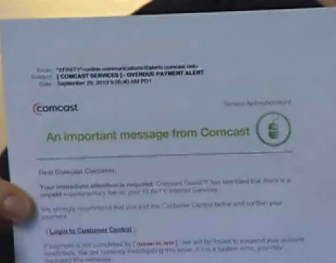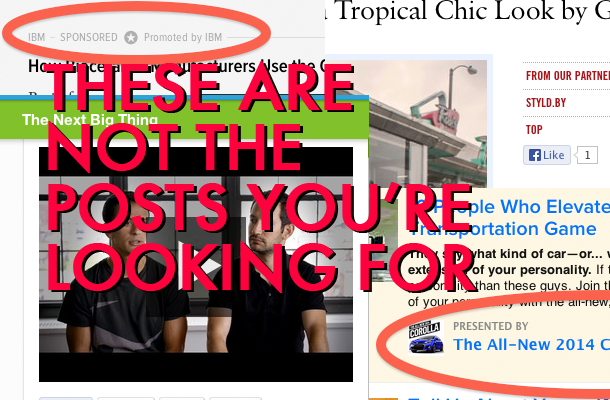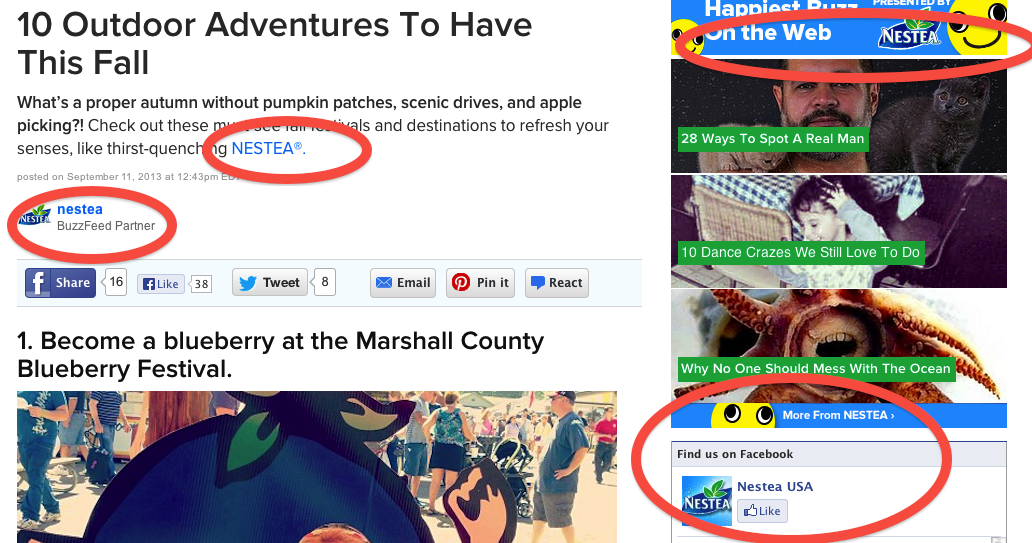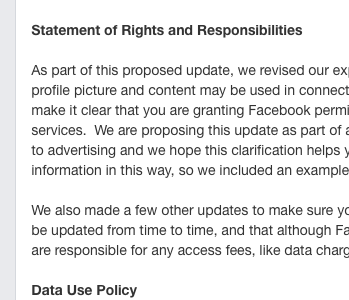Like it or hate it, your credit report and credit score have lots of power. These may determine whether or not you’re approved for a mortgage, car loan, or other borrowing, and will determine the interest rates on your credit cards. This information is often even used when you’re evaluated for an apartment, insurance or a job, or try to get a bank account. That’s why it’s incredibly important to check your credit report for errors, as mistakes on your report can haunt every part of your financial life for years. [More]
ftc

TV Pitchman Kevin Trudeau Found Guilty Of Making Misleading Weight-Loss Claims In Infomercials
We’ve been following the saga of former bestselling weight loss guru and TV pitchman Kevin Trudeau for about six years, since he was found in contempt of court for violating a 2004 FTC settlement banning him from misrepresenting the content of his books. The Trudeau tale is nearing a final chapter now that he faces possible jail time after being found guilty of criminal contempt for misleading statements in his infomercials. [More]

Aaron’s Agrees To Stop Snooping On Customers Via Rented Computers
In Sept. 2012, Aaron’s was one of several rent-to-own retailers caught using software to illegally snoop on customers who rented computers. Yesterday, the Federal Trade Commission announced that Aaron’s has agreed to settle these charges and make sure franchisees cease the spying. [More]

No, Comcast Will Not Threaten To Arrest You If You Don’t Pay Your Bill
So you’ve received an e-mail from Comcast saying you’re $25 late on your cable bill and that if you don’t resolve the issue ASAP, you could be arrested. First, that’s simply not true, and second, that message isn’t from Comcast. [More]

No, You Did Not Just Win $2 Million: FTC Sues To Stop Scammy Sweepstakes Letters
“OH MY GOD, MOM! YOU WON $2 MILLION!” I may or may not have screamed at my mother at some point in my youth, while brandishing an envelope with that very same claim emblazoned across it. But my mother didn’t join in celebration, because she like, everyone else who gets those letters, didn’t win a dime. The Federal Trade Commission has now sued to stop what it calls a massive sweepstakes scam responsible for bilking more than $11 million from people in the U.S. and around the world. [More]

The Many Ways Of Hiding An Ad As A “Sponsored Post”
Advertisers have always sought seamless integration of their brands into consumer-targeted content, driven by the notion that the audience is less irritated by a commercial if it doesn’t scream “I’m a commercial.” But at what point does that line get so fuzzy that it’s hard to tell the difference between the two? [More]

Judge Jails TV Pitchman Kevin Trudeau So He’ll Cooperate In Fraudulent Infomercial Case
How do you make a slippery late-night TV pitchman sit still and behave? If you’re a federal judge fed up with Kevin Trudeau’s shenanigans you put him in jail. Trudeau has reportedly flouted court orders to pay millions in fines stemming from fraudulent infomercials, and now the judge says he’s been spending money on stuff like cigars and fancy meat when he shouldn’t be. [More]

What Does It Actually Mean For A Product To Be “Green” Or “Environmentally Friendly”?
When you see a product with the image of a smiling planet wrapped in green, leafy foliage and touting its “eco-friendly” quality, what do you think? Probably something like, “Oh, that’s probably good for the environment or can be recycled or something?” You aren’t alone in your confusion/generalization — even though the Federal Trade Commission updated its Green Guides for environmental advertising, plenty of people are still hazy on the whole idea. [More]

Feds To Investigate The Fuzzy Line Between Advertising & Editorial Content
Call them “advertorials,” “sponsored stories,” “brand journalism,” or — the latest nonsense term — “native advertising,” but it’s all the same: An ad that looks an awful lot like — and is often not distinguishable from — a website’s editorial content. Since consumers have long stopped even noticing banners, click away from pages with auto-play video ads, and increasingly use mobile devices to go online, advertisers have turned to these ad-wolves in editorial sheep’s clothing. [More]

Buyers Of Not-So-Magic Cold And Weight Loss Supplements To Receive Refunds From FTC
There is no magic pill for weight loss, not even if that pill contains a tapeworm. Yet companies keep introducing and marketing such pills, because we’re human and like to eat ice cream sandwiches and wish that such a thing existed. People who bought one not-so-magic supplement are getting refund checks this week from the Federal Trade Commission. [More]

FTC Looking Into Recent Change To Facebook Privacy Policy
Back in 2011, Facebook settled charges with the Federal Trade Commission that the website deceived consumers by telling them they could keep their information private, only to repeatedly allow that information to be shared and made public. The settlement requires that Facebook get explicit permission from users before sharing such information, but the FTC wants to know if the website’s latest privacy update violates that agreement. [More]

FTC: Webcam Company’s Lax Security Led To Invasions Of Privacy
It’s all fun and Internet-connected games until someone gets spied on, says the Federal Trade Commission in a recent action it’s taking to protect consumers from seemingly innocent digital devices. The Internet of Things makes it so we can be online all the time, with our appliances, vehicles and many other objects we interact with on a daily basis. But the FTC is warning customers about webcams from TRENDnet that might not be so secure. [More]

What’s Worse Than A Payday Loan? A Payday Loan Scammer
Short-term, high-interest payday loans are illegal in several states, but that doesn’t stop consumers from trying to get their hands on quick cash. So when they see a website offering to hook them up with a payday lender and get them up to $1,000 in about an hour, it may seem like a good deal. That is, until that loan never shows up and the borrower has even less money in her bank account. [More]

It’s Against The Law For Car Dealers To Not Give Consumers All Relevant Info About Deals
Take a look at the ad to the left promising $12,000 off MSRP for a 2013 Ford F-150. That’s a heck of an offer for a truck that starts at around $24,000. But what you don’t see — and what you don’t find out until you try to buy the vehicle — is that the discount only applies to the $47,000 F-150 Lariat version, so instead of getting a 50% discount on a reasonably priced new truck, you learn that it’s around a 25% savings on a high-end vehicle. [More]

Please Don’t Press Any Buttons When You Get A Scammy Robocall
We regularly receive complaints from readers who receive robocalls even though their numbers are on the Do Not Call List or they pressed “2” to have their numbers removed. The fact is that these robocallers simply don’t care about the law or whether you want to hear from them. [More]

$11 Million Penalty Apparently Wasn’t Enough To Stop Scammy Telemarketers
Back in 2007-8, the Federal Trade Commission shut down a sketchy telemarketing company called Suntasia Marketing, Inc., for defrauding consumers and charging their bank accounts without consent programs they never enrolled in, like memberships in discount buyer’s and travel clubs. Two of the defendants behind the scam were hit with $11 million settlements and barred from getting involved in these sorts of shenanigans in the future, but that apparently wasn’t sufficient penalty to set them on a righteous path. [More]




